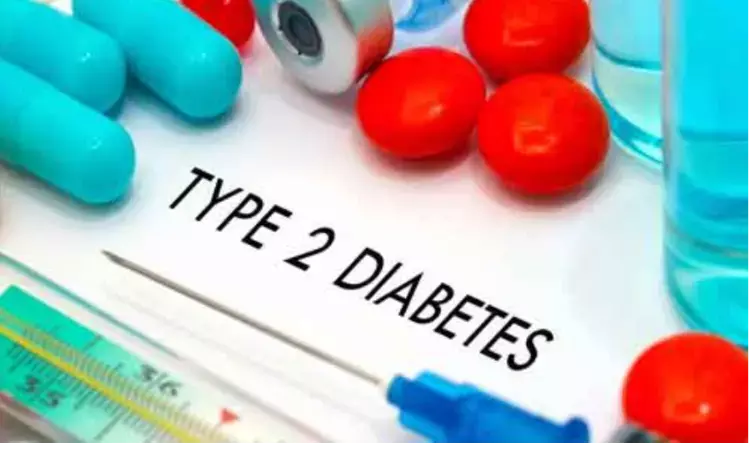- Home
- Medical news & Guidelines
- Anesthesiology
- Cardiology and CTVS
- Critical Care
- Dentistry
- Dermatology
- Diabetes and Endocrinology
- ENT
- Gastroenterology
- Medicine
- Nephrology
- Neurology
- Obstretics-Gynaecology
- Oncology
- Ophthalmology
- Orthopaedics
- Pediatrics-Neonatology
- Psychiatry
- Pulmonology
- Radiology
- Surgery
- Urology
- Laboratory Medicine
- Diet
- Nursing
- Paramedical
- Physiotherapy
- Health news
- Fact Check
- Bone Health Fact Check
- Brain Health Fact Check
- Cancer Related Fact Check
- Child Care Fact Check
- Dental and oral health fact check
- Diabetes and metabolic health fact check
- Diet and Nutrition Fact Check
- Eye and ENT Care Fact Check
- Fitness fact check
- Gut health fact check
- Heart health fact check
- Kidney health fact check
- Medical education fact check
- Men's health fact check
- Respiratory fact check
- Skin and hair care fact check
- Vaccine and Immunization fact check
- Women's health fact check
- AYUSH
- State News
- Andaman and Nicobar Islands
- Andhra Pradesh
- Arunachal Pradesh
- Assam
- Bihar
- Chandigarh
- Chattisgarh
- Dadra and Nagar Haveli
- Daman and Diu
- Delhi
- Goa
- Gujarat
- Haryana
- Himachal Pradesh
- Jammu & Kashmir
- Jharkhand
- Karnataka
- Kerala
- Ladakh
- Lakshadweep
- Madhya Pradesh
- Maharashtra
- Manipur
- Meghalaya
- Mizoram
- Nagaland
- Odisha
- Puducherry
- Punjab
- Rajasthan
- Sikkim
- Tamil Nadu
- Telangana
- Tripura
- Uttar Pradesh
- Uttrakhand
- West Bengal
- Medical Education
- Industry
Treatment with DPP-4i versus sulphonylureas yield similar MACE risk in type 2 diabetics: Study

UK: Type 2 diabetes (T2D) patients treated with DPP-4 inhibitors versus sulphonylureas as add-on to metformin has a similar risk of cardiovascular outcomes, a recent has found. The findings, published in the journal Scientific Reports, indicates that the choice should be based on cost and safety, not cardiovascular prognosis.
Sulphonylureas and DPP-4 inhibitors (DPP-4i) are the most widely prescribed add-on treatments following metformin for type 2 diabetes. However, there is not much evidence from clinical practice that compared major adverse cardiovascular events (MACE), particularly among those not having any previous MACE history and from population groups.
To fill the knowledge gap, Juan Carlos Bazo-Alvarez, University College London (UCL), London, UK, and colleagues compared the incidence of MACE (myocardial infarction, stroke, major cardiovascular surgery, unstable angina) and all-cause mortality among those prescribed DPP-4i versus sulphonylureas as an add-on to metformin in people diagnosed with type-2 diabetes mellitus.
For this purpose, the researchers undertook a retrospective cohort study using electronic health records from UK primary care. The analysis was stratified by history of MACE, age, social deprivation and comorbidities. They were adjusted for HbA1c, weight, smoking-status, comorbidities and medications. The researchers identified 17,570 patients prescribed sulphonylureas and 6,267 prescribed DPP-4i between 2008–2017. 16.3% had pre-existing MACE.
Following were the study's key findings:
- Primary incidence of MACE was similar in patients prescribed DPP-4i and sulphonylureas (10.3 vs 8.5 events per 1000 person-years; adjusted Hazard Ratio (adjHR): 0.94).
- For those with pre-existing MACE, rates for recurrence were higher overall, but similar between the two groups (21.8 vs 17.2 events per 1000 person-years; adjHR: 0.93).
- For those aged over 75 and with BMI less than 25 kg/m2 there was a protective effect for DPP-I, warranting further investigation.
"The findings imply that cardiovascular considerations should not be the alone criteris for choosing between either therapy," wrote the authors. "This means the decision between both should largely be based on local economic considerations, given that DPP-4i remain more costly however demonstrate no propensity for weight gain and are superior in terms of clinical safety, with respect to hypoglycemia."
Reference:
Bazo-Alvarez, J.C., Pal, K., Pham, T.M. et al. Cardiovascular outcomes of type 2 diabetic patients treated with DPP‑4 inhibitors versus sulphonylureas as add-on to metformin in clinical practice. Sci Rep 11, 23826 (2021). https://doi.org/10.1038/s41598-021-02670-9
Dr Kamal Kant Kohli-MBBS, DTCD- a chest specialist with more than 30 years of practice and a flair for writing clinical articles, Dr Kamal Kant Kohli joined Medical Dialogues as a Chief Editor of Medical News. Besides writing articles, as an editor, he proofreads and verifies all the medical content published on Medical Dialogues including those coming from journals, studies,medical conferences,guidelines etc. Email: drkohli@medicaldialogues.in. Contact no. 011-43720751


